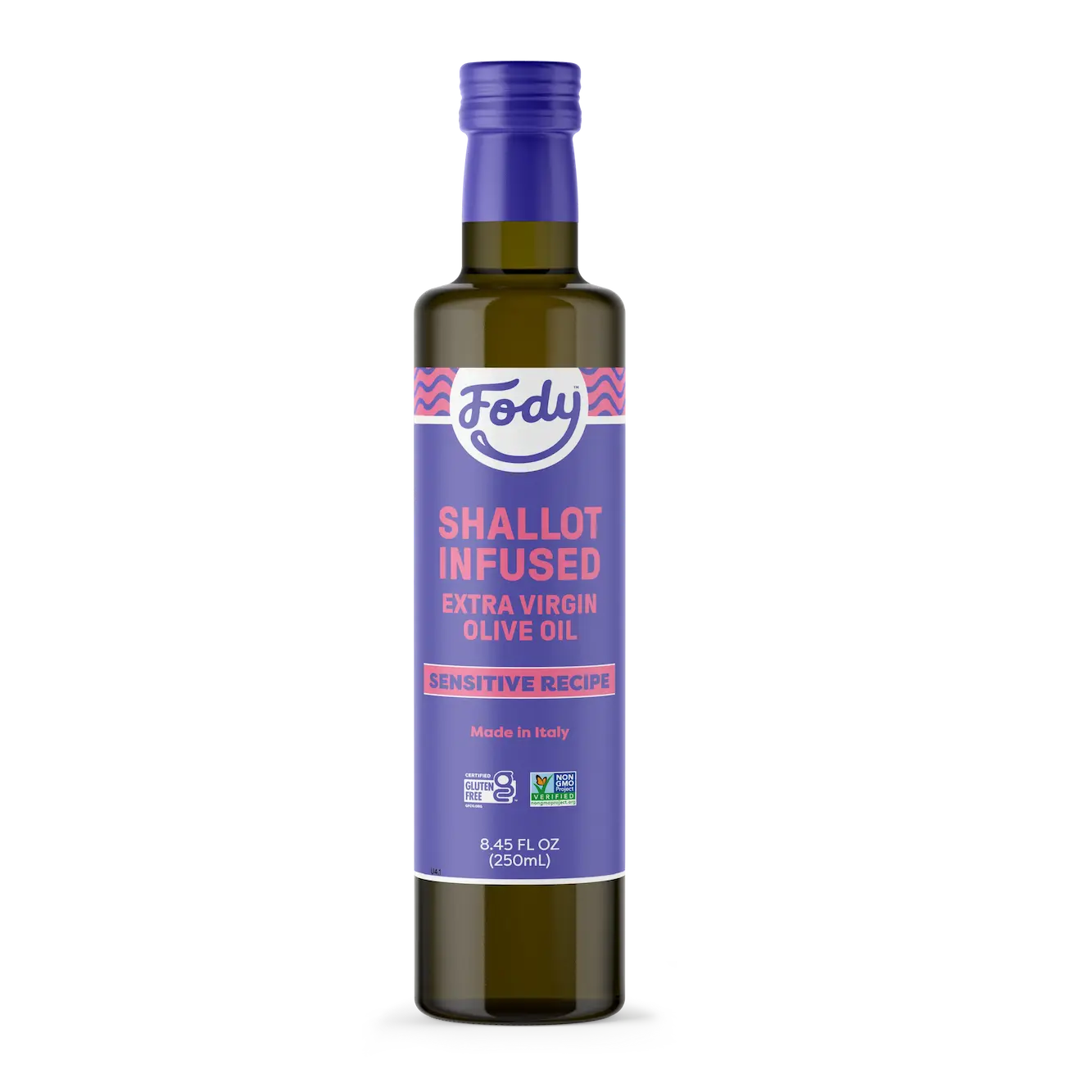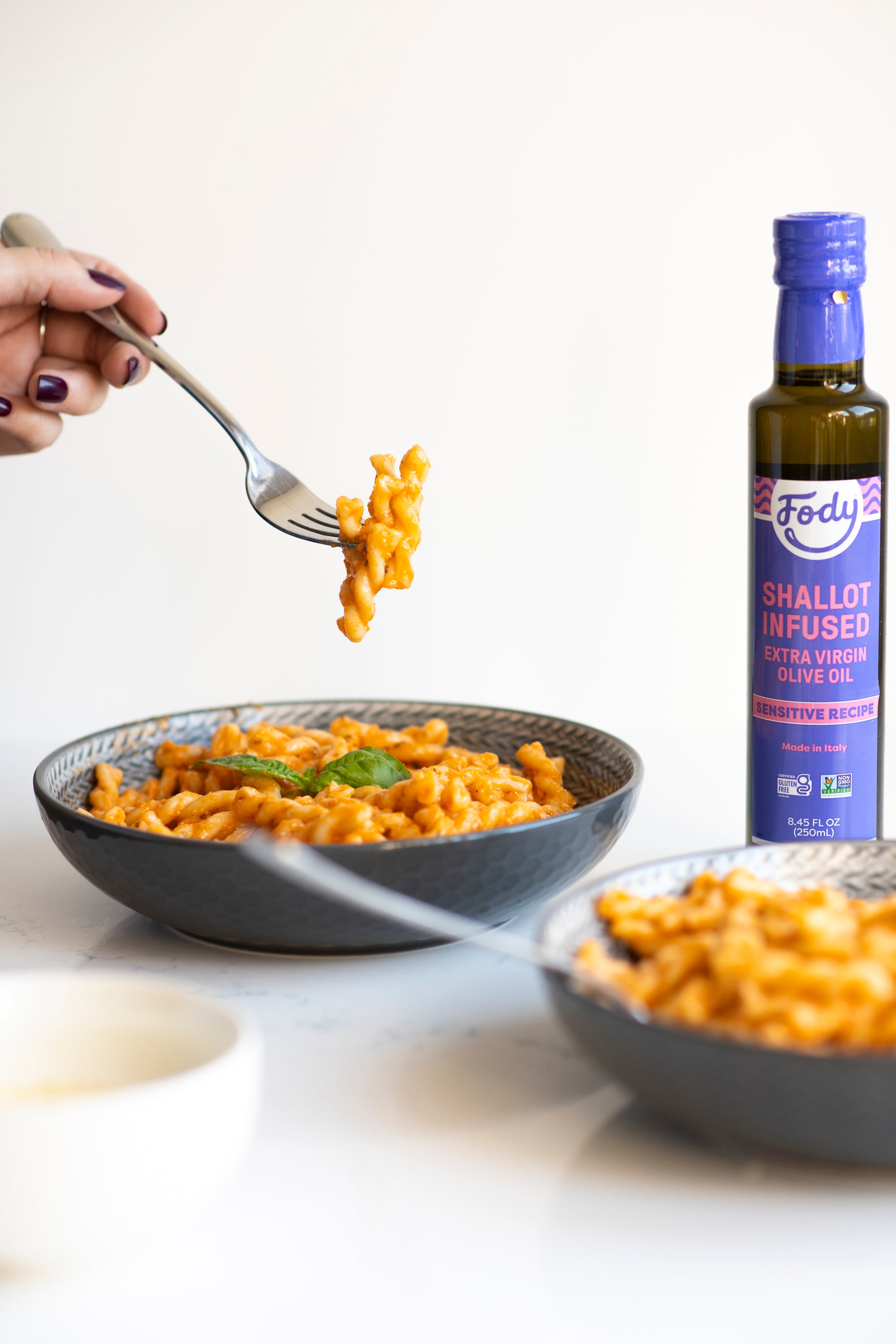

8 Low FODMAP Foods That Are Good for Gut Health
Looking to improve your gut health? There are plenty of reasons to! Taking care of your gastrointestinal system can lead to an overall boost – and leave you feeling better on a daily basis. As you start to worry less about calories and more about foods that are good for your gut health, you’ll notice the benefits. Suddenly your skin will be glowing, you’ll feel less bloated and icky, and you’ll have a newfound pep in your step!
Of course, if you want to take care of your gut health, but you also have IBS, you’ll need to be mindful that the foods you’re consuming are not only gut-friendly but also low FODMAP! Not sure where to start? Why not follow the guide below and add more of these foods to your daily diet?
The Best Low FODMAP Foods For Gut Health
-
Kimchi (Up to 47g)
As a fermented food, Kimchi is rich in probiotics and great for the gut. Known to help with digestion, Kimchi may improve levels of good bacteria, alleviating common symptoms of IBS such as constipation. By sticking with the Monash University recommended serving size of 47 grams and under, you’ll be able to add Kimchi to your gut health diet while maintaining the low FODMAP diet.
-
Miso (Up to 12g)
A favorite Japanese starter, Miso is not only delicious it’s also super beneficial for gut health. Made primarily of soybeans, which are rich in protein and other nutrients, It’s also full of probiotics. One of these probiotics – A. Oryzae has been known to reduce the risk of Inflammatory Bowel Disease and other problems with the digestive system. (source)
And although 12 grams seems like a small amount, because it’s a paste, sticking with the recommended serving size should not be an issue.
-
Tempeh (Up to 100g)
Did you know that Tempeh has an impressive nutrient profile? It’s high in protein, vitamins, and minerals, but low in sodium and carbohydrates. With around 15 grams of protein in a 3-ounce serving, it’s a fantastic Low FODMAP vegetarian option, plus it’s a great source of calcium despite the fact that it’s dairy-free! And since it’s so nutrient-dense, 100 grams per day makes for a super filling addition to your Low FODMAP diet.
Rich in both prebiotics and probiotics, it encourages the growth of healthy bacteria in the gut, which is why it made the cut for our list of gut-friendly foods!
-
Lactose-Free Yogurt
Dealing with the dilemma of reaping the benefits of yogurt without having to worry about the side effects of lactose? The solution is simple – go lactose-free! Since lactose sensitivity and intolerance are commonplace, it should be easy to find at your local grocery store and make for a low-maintenance addition to your Low FODMAP diet. If there are several options available, try lactose-free Greek yogurt, which has been known to help increase stomach flora and improve your digestion.
-
Oatmeal
Since it contains both soluble and insoluble fiber, oatmeal is great for promoting gut health. As it goes through your digestive system, oatmeal strengthens your gut, binds soluble fiber, and helps bulk up your BMs. Since it’s incredibly nutrient-dense, it can also help keep you feeling full for a long period of time, potentially eliminating cravings and giving your body time to digest.
For a quick and easy Low FODMAP breakfast featuring oatmeal, why not try our all time most popular recipe, Low FODMAP Overnight Oats with Berries.
-
Walnuts (Up to 30g)
According to Medicinenet, eating a daily dose of walnuts as part of a healthy diet may promote the growth of good gut bacteria that boost health. As an added bonus, according to a recent study, walnuts may also help modify certain risk factors for heart disease.
When adding walnuts as part of the Low FODMAP diet, make sure to stick with the recommended serving size of 30 grams and below.
-
Flax Seeds (Up to 14g)
For years, flax seeds have been touted as a superfood – and there’s a good reason for that! Choc full of dietary fiber, Omega-3 fatty acids, and lignans, they’re also low calorie and easy addition to your daily diet. Flax seeds are full of protein and contain a number of vitamins such as Thiamine, Copper, Molybdenum, Magnesium, and Phosphorus, which all contribute to a healthy diet. Not super flavorful, they simply add a touch of texture to your meals, while quietly boosting your gut health and improving digestion. (source)
-
Low FODMAP Fruits and Vegetables
And last but not least, fruits and vegetables are a highly recommended addition to any diet – and that includes the Low FODMAP diet and gut health diet. While individual benefits vary, diversity is a key factor in keeping a healthy gut! If you’re not sure which fruits and veggies are okay, try referencing our handy lists of Low FODMAP foods to enjoy and High FODMAP foods to avoid.
For more tips and tricks, head to our blog, or start shopping our gut-friendly foods today!
So, what are you waiting for?
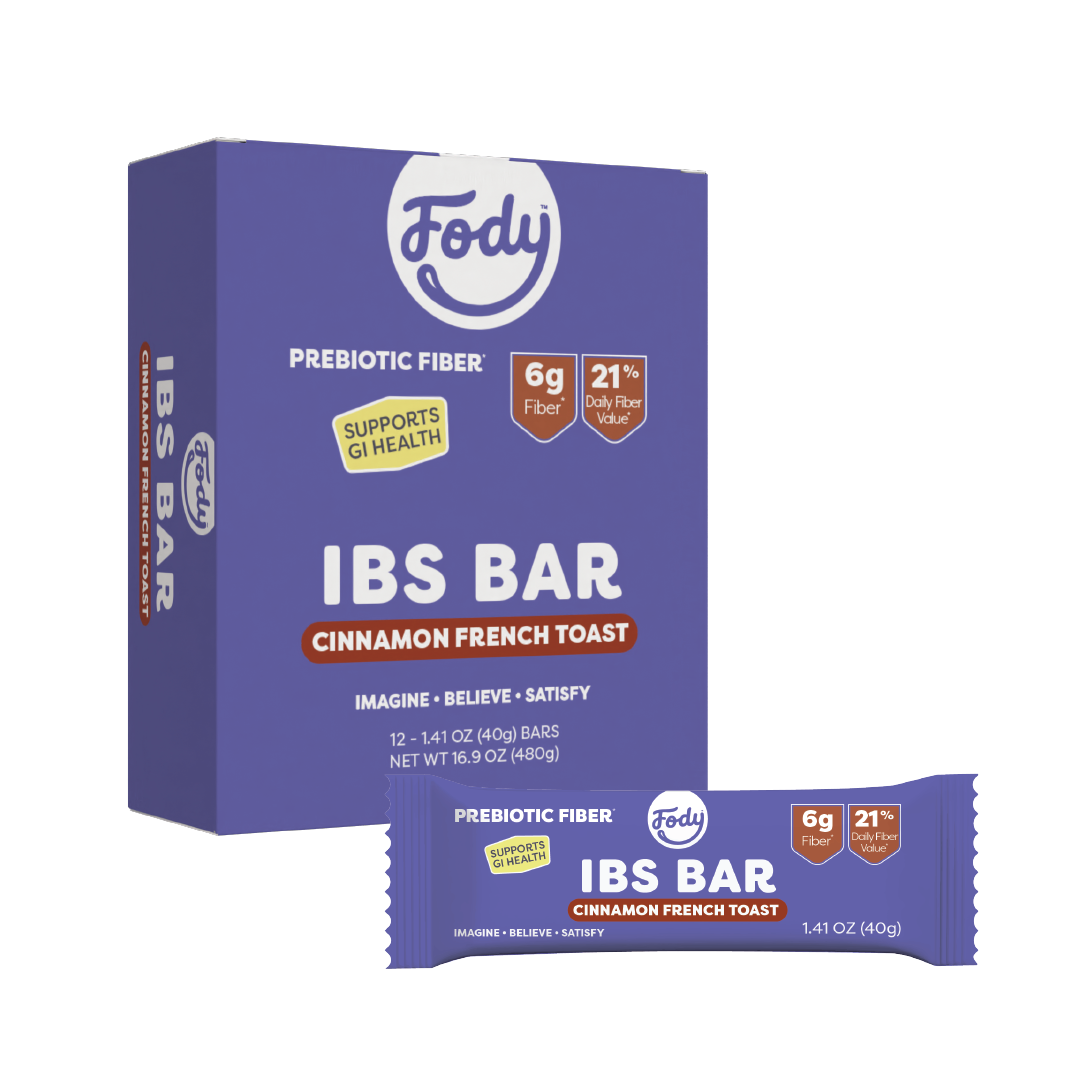
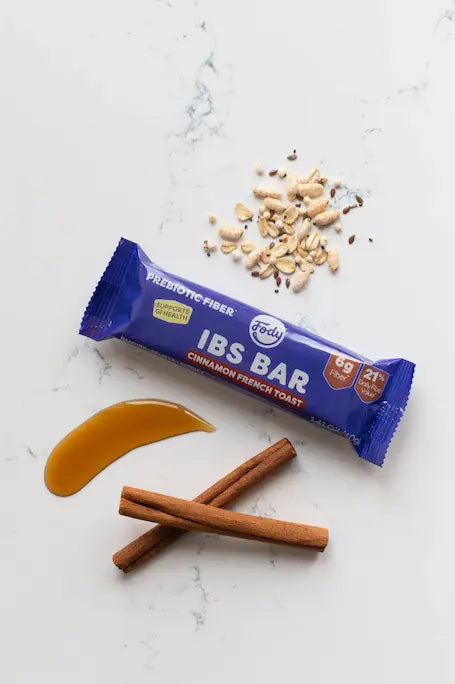 Cinnamon French Toast High Fiber Snack Bar - 12 Pack
Cinnamon French Toast High Fiber Snack Bar - 12 PackCinnamon French Toast High Fiber Snack Bar - 12 Pack
$32.99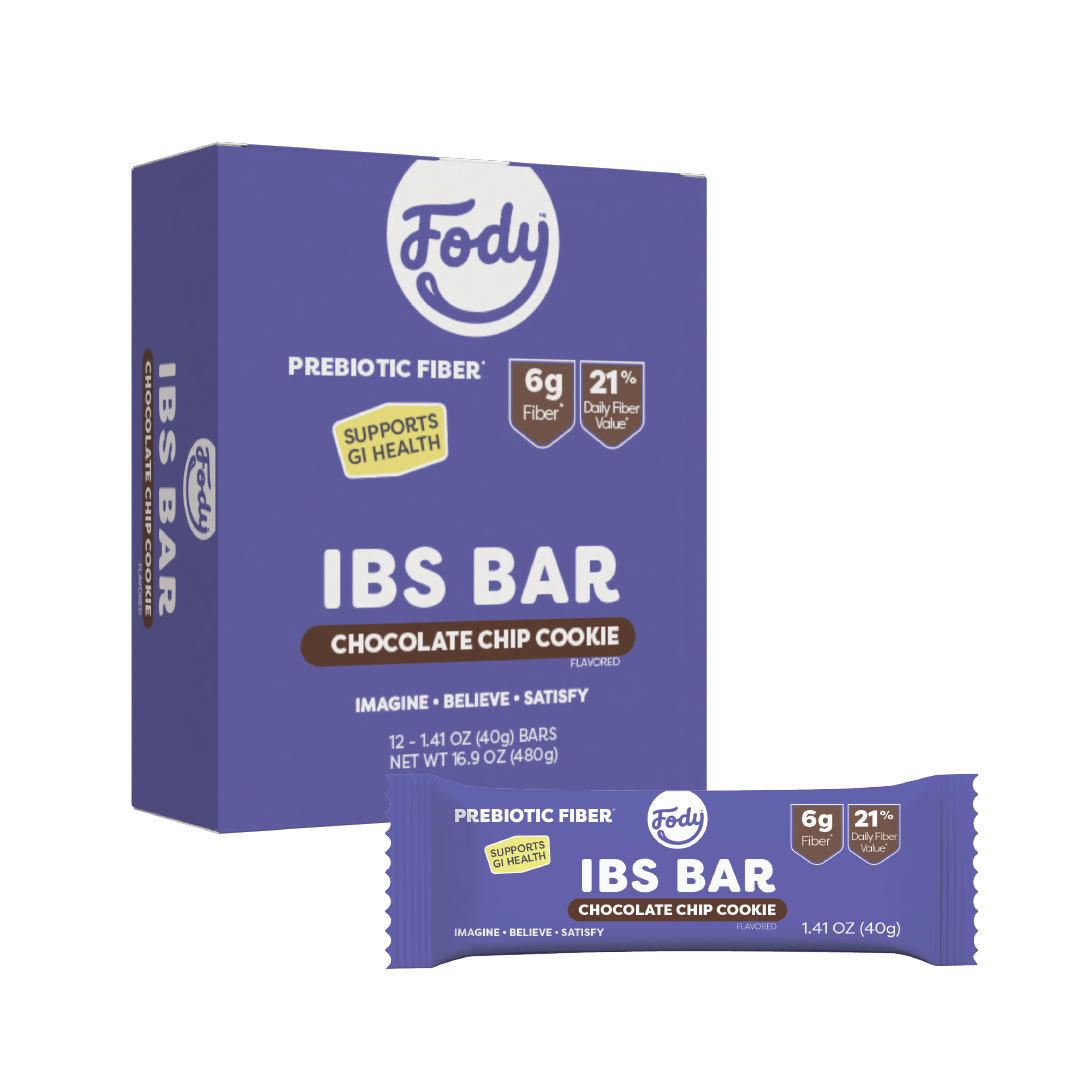
 Chocolate Chip Cookie High Fiber Snack Bar - 12 Pack
Chocolate Chip Cookie High Fiber Snack Bar - 12 PackChocolate Chip Cookie High Fiber Snack Bar - 12 Pack
$32.99











